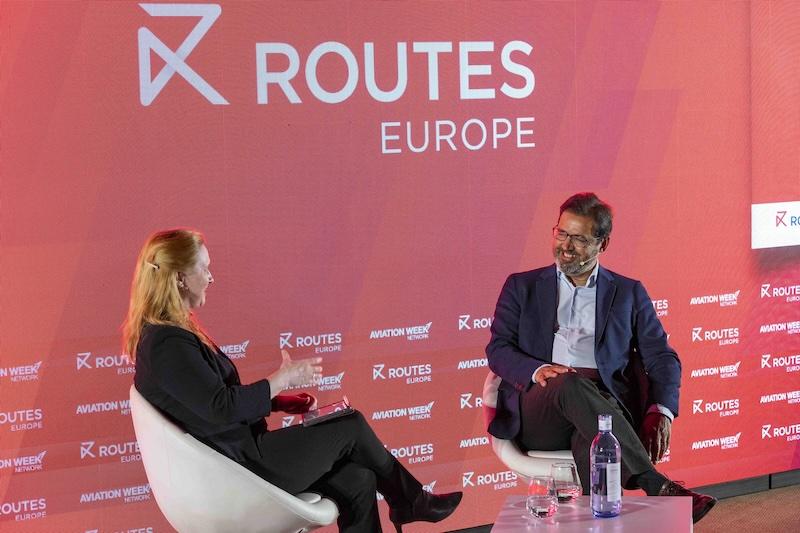This article is published in Aviation Week & Space Technology and is free to read until May 18, 2025. If you want to read more articles from this publication, please click the link to subscribe.

EasyJet's Javier Gándara on stage at Routes Europe 2025.
SEVILLE, Spain—An easyJet executive strongly defended his company’s policy of charging passengers who take wheeled bags onboard, saying it is good for consumers.
UK carrier easyJet is one of five European LCCs that have been fined a total of €179 million ($203 million) by Spain for charging for onboard wheeled bags, describing it as an “abusive practice.” Ryanair, Norwegian, Vueling and Volotea have also been targeted.
Speaking during the conference program at Routes Europe 2025 in Seville, easyJet director general for southern Europe, Javier Gándara, stood firmly behind his airline’s policy and said easyJet will strongly defend itself against the fine, which also breaks with European Union policy. EasyJet’s portion of the fine is €29 million.
Gándara first emphasized the practicality of charging for onboard wheeled bags, pointing out that in the narrowbodies that most LCCs use—Airbus A320-family and Boeing 737-family jets—there is not enough overhead bin space when most aircraft are taking off with full passenger loads. “In an A320 or 737, you have about 180 seats but room for only 90 roll-ons. This gets people frustrated at the last minute and leads to delays,” he said.
“It has become a premium to take a wheeled bag onboard, and so we started charging for that. Some passengers only take on a small backpack and don’t need to pay for a wheeled bag. It’s about choice. More than 30% of our passengers don’t fly with a checked bag or a wheeled bag.”
Gándara also said that Spanish authorities said airlines should allow a “reasonable”-sized bag onboard without a fee, but did not define what was reasonable.
He added that when passengers pay a fee in advance to check or take onboard a wheeled bag, the airline can better plan for that, which leads to significant reductions in flight delays.
“We strongly defend this policy as being good for consumers,” Gándara said.





